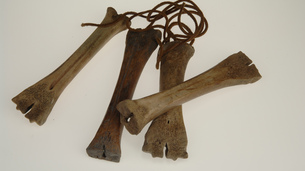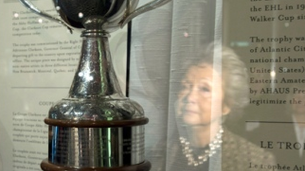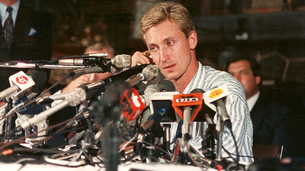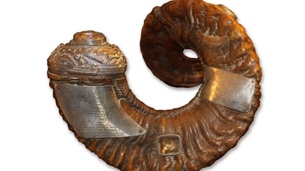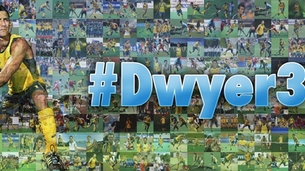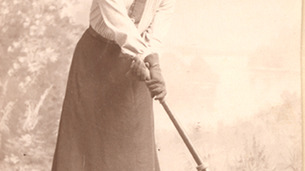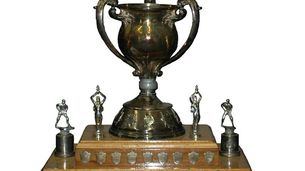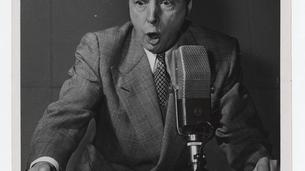At his home in Forest Hill, Ont., Foster Hewitt has just finished cooking a steak. A crew from CBC Television's Graphic is on hand to witness not only Hewitt's prowess in the kitchen, but to meet the entire Hewitt clan. Foster proudly presents his father and wife, then approaches the table where his children are playing Scrabble. Between introductions, we hear anecdotes about Foster's boxing career, his first hockey broadcast and his secret for remembering names.
• Foster Hewitt married Elizabeth Kathleen How in 1925 and the couple had three children (Bill, Wendy and Ann.)
• The Toronto Star's radio station went off the air in 1933; the Star had supported public ownership of radio and, after the 1932 Broadcasting Act, looked toward government stations eventually replacing private ones. Hewitt's broadcasts were then carried on Toronto's CFRB and relayed to other stations.
• When the CBC was created in 1936, Hewitt's games were carried on CBC affiliate stations. In the 1950s the name Hockey Night in Canada was used.
• In 1951, Foster Hewitt also started up his own radio station with call letters ending with his initials: CKFH, AM1430. It started at a power of just 250 watts but grew to a powerful 50,000 watts. In 1963 Hewitt retired from his other duties to devote all his time to CKFH.
• In the spring of 1952 Foster Hewitt became the first broadcaster to try play-by-play skills on television for CBC. Hewitt called a closed-circuit broadcast of a Memorial Cup game at Maple Leaf Gardens for a group of hockey and broadcasting officials, convincing them the same style of commentary could be done on TV.
• On Nov. 1, 1952, Foster Hewitt broadcast Canada's first televised hockey game for Hockey Night in Canada, a match between the Montreal Canadiens and the Toronto Maple Leafs. In 1957, he turned over the television role to his son Bill, and returned to radio (though Foster continued to do the televised post-game wrap-ups and announce the games' three stars).
• Bill Hewitt's hockey broadcasting career actually began at age eight. Each year Foster would give him one minute of radio airtime on "Young Canada Hockey Night" a practice that lasted 11 years. Bill Hewitt went on to be a manager of CKFH before taking over CBC Television's Hockey Night in Canada from his father.
• In 1973, Bob Cole replaced the ailing Bill Hewitt, who eventually retired in 1981 due to a debilitating blood infection. In 1996, the Hockey Hall of Fame awarded Bob Cole the Foster Hewitt Award for Excellence in Hockey Broadcasting. You can see Bob Cole paying tribute to the late Foster Hewitt in our additional clips.
• Kay Hewitt died in 1969 after a battle with cancer. In May 1972, Hewitt married Joan Darlie Lang.
CREDIT - CBC Digital Archives at http://www.cbc.ca

